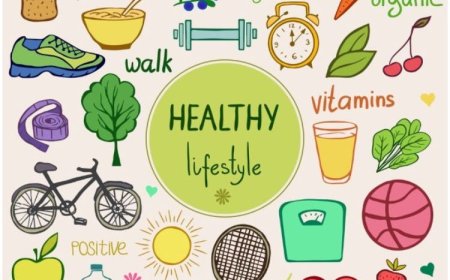Building a Strong Foundation for a Healthy Lifestyle: Basic Lifestyle Guidelines (BLGs)
When it comes to achieving our fitness and wellness goals, we often find ourselves searching for the perfect program or diet. However, before diving into complex regimens, it's crucial to establish a solid foundation of healthy habits.

When it comes to achieving our fitness and wellness goals, we often find ourselves searching for the perfect program or diet. However, before diving into complex regimens, it's crucial to establish a solid foundation of healthy habits.
![]()
ALIGNMENT: FINDING YOUR PATH TO SUCCESS
Alignment goes beyond setting goals; it represents your personal connection with your coach and your journey. As our intentions and motivations shift over time, it's vital to reassess and ensure alignment with our goals. Studies have shown that having a clear sense of purpose and alignment in life can improve overall health, reducing the risk of chronic diseases and inflammation.
ENERGY: SYNCING WITH NATURAL RHYTHMS
Being in sync with our natural rhythms has a significant impact on our well-being. Our DNA is wired to follow wake/sleep cycles aligned with the sun and moon. Consistency in daily activities, such as eating, sleeping, and moving, plays a crucial role in maintaining this sync. Disruptions to our circadian rhythm, caused by irregular sleep schedules or excessive exposure to nighttime light, can lead to imbalances in energy levels and overall health.
FOOD: QUALITY AND HYGIENE MATTER
Food quality and hygiene are essential factors for a healthy lifestyle. Understanding the nutritional value of your food choices is crucial. Additionally, practicing good food hygiene, including mindful eating habits, can improve digestion, satisfaction, and mindful decision-making. Addressing food quality and hygiene before adopting complex nutrition plans ensures a solid foundation for sustainable dietary habits.
HYDRATION: NOURISHING YOUR BODY
Hydration is a vital BLG. Aim to drink at least half your body weight in ounces of water per day. Proper hydration supports energy levels, cognitive function, physical performance, and digestion. Dehydration can negatively impact mood, energy, digestion, cognitive function, and overall health. Remember, relying on thirst alone may not always indicate dehydration, especially in older adults.
MOVEMENT: MOVE EVERY DAY
Incorporating movement into your daily routine is crucial for overall health and well-being. Whether it's a gym workout, a walk, a hike, or biking, regular movement promotes cardiovascular health, weight management, mood improvement, and cognitive function. It also contributes to an active lifestyle and a sense of vitality.
SUNSHINE: EMBRACE THE NATURAL LIGHT
Sunshine plays a significant role in our well-being. Exposure to sunlight helps regulate our circadian rhythm, enhances sleep quality, and boosts vitamin D levels. Vitamin D synthesis and melatonin production are influenced by sunlight exposure. So, make sure to enjoy some time outdoors and embrace the benefits of natural light.
SLEEP: PRIORITIZE RESTORATIVE REST
Quality sleep is essential for your overall health and well-being. Aim for at least seven hours of uninterrupted sleep each night and pay attention to the factors that affect your sleep quality. Establishing a consistent sleep schedule, adopting a relaxing bedtime routine, and creating a comfortable sleep environment are crucial steps toward achieving restorative rest. Deep sleep, in particular, supports memory consolidation, cognitive function, and the body's recovery processes.
POOP: THE ULTIMATE HEALTH ASSESSMENT
While it may not be the most glamorous topic, paying attention to your bowel movements is important for digestive health. Aim for at least one bowel movement per day, and consider the quality of your poop. The Bristol Stool Chart provides helpful insights into the health of your digestive system. Ideally, your stool should resemble a type 4 on the chart—smooth, soft, and shaped like a sausage or snake. If you experience irregularity, increasing fiber intake, staying hydrated, and incorporating movement into your daily routine can help.
What's Your Reaction?

























































































